
Catch up on the top radiology content of the past week.

Catch up on the top radiology content of the past week.
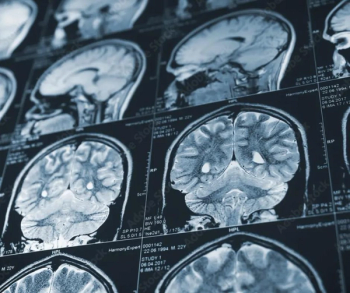
Researchers found that higher shift volumes, longer imaging interpretation times and weekend work were significantly associated with increased errors in neuroradiology.
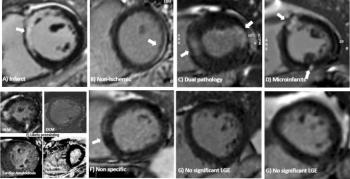
Consensus recommendations from the Society for Cardiovascular Magnetic Resonance provide pertinent insights on the unique abilities of cardiac magnetic resonance imaging (MRI) to provide optimal characterization of myocardial tissue and diagnosis of COVID-19-related myocardial injuries.
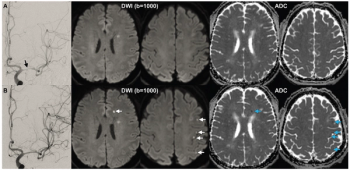
In the study of 119 patients who had endovascular treatment for intracranial atherosclerotic stenosis, multivariable analysis revealed that post-op ischemic brain lesions on diffusion-weighted magnetic resonance imaging (MRI) were 3.6 times more likely to occur in patients who smoke cigarettes and 2.9 times more likely in patients who had multiple operative attempts.

Catch up on the top radiology content of the past week.

Catch up on the top AI-related news and research in radiology over the past month.
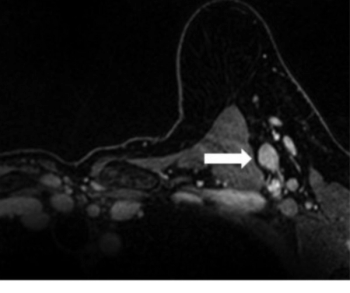
In a study of 128 patients who had breast magnetic resonance imaging (MRI) exams after COVID-19 booster vaccination, researchers noted that nearly 19 percent of the cohort had equal to or greater than 0.2 cm of increased lymph node cortical thickness.
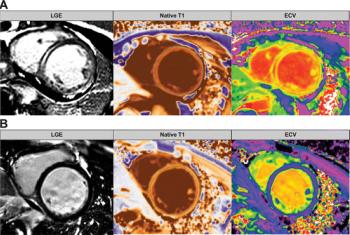
Emerging research suggests that cardiac MRI findings of late gadolinium enhancement, native T1 values and extracellular volume fraction may predict sudden cardiac death-related events in patients with nonischemic dilated cardiomyopathy.

Catch up on the top radiology content of the past week.
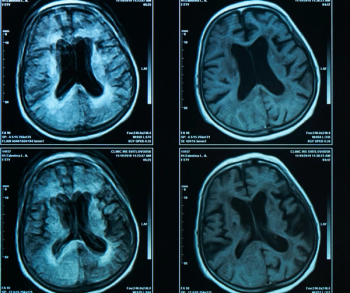
In a review of 555 neuroimaging-based artificial intelligence (AI) models for the diagnosis of psychiatric disorders, researchers found that nearly 72 percent of the AI models had an inadequate sample size and over 99 percent were insufficient at handling data complexity.

Catch up on the top radiology content of the past week.
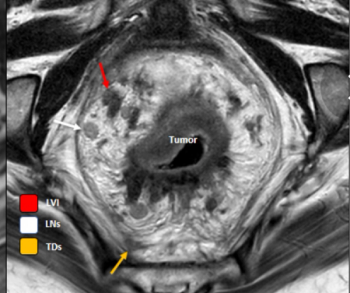
In a cum laude awarded presentation at the European Congress of Radiology (ECR), researchers discussed misconceptions and pertinent principles for magnetic resonance imaging (MRI) of patients with rectal cancer, ranging from the diagnosis of mucinous tumors to the impact of mesorectal fascia status for rectal cancer recurrence.
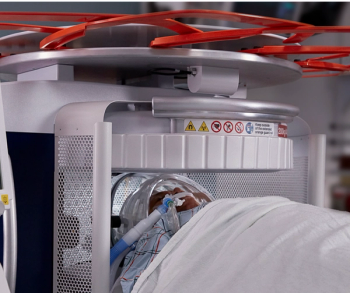
The new software for the Swoop® Portable MR Imaging system reportedly enhances the signal-to-noise ratio for diffusion-weighted imaging (DWI) sequences by 42 percent in comparison to the previous software.

Catch up on the top radiology content of the past week.

Catch up on the top AI-related news and research in radiology over the past month.
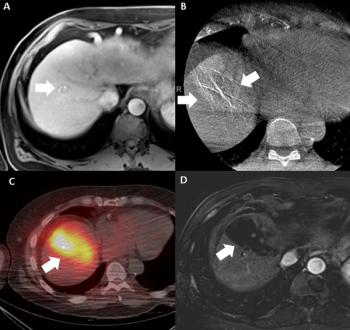
Reviewing recent changes to the Barcelona Clinic Liver Cancer (BCLC) staging system for hepatocellular carcinoma and the potential impact for interventional radiologists, these authors discuss key updates including the subdivision of patients with intermediate stage disease and emerging literature on systemic agents for advanced disease.

Catch up on the top radiology content of the past week.
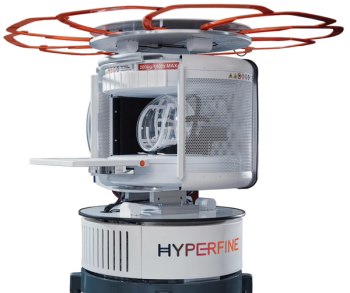
The upgraded, artificial intelligence (AI)-enabled software for the Swoop® Portable MR Imaging System reportedly enhances the device’s signal-to-noise ratio for diffusion-weighted imaging (DWI) sequences.

Catch up on the top radiology content of the past week.

In a new study that may have implications for breast cancer surgery, researchers found that shorter time to enhancement (TTE) on preoperative ultrafast magnetic resonance imaging (MRI) was significantly associated with escalation of ductal carcinoma in situ (DCIS) to invasive breast cancer.
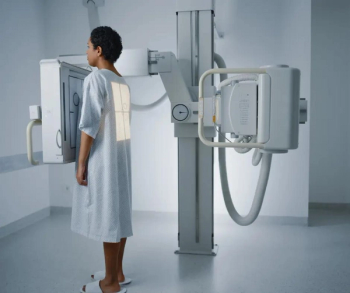
In a new study of 1,232 women diagnosed with breast cancer within a year of a screening mammography exam, researchers found that interval breast cancer was 17 percent more likely in women with dense or extremely dense breasts, and over three times more likely to involve stage 2 or higher primary tumors in comparison to screening-detected breast cancer.

Catch up on the top radiology content of the past week.
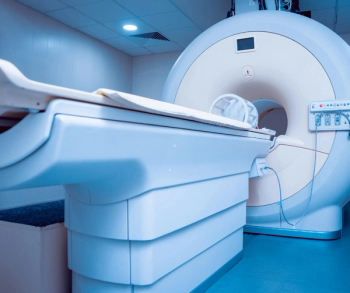
While acknowledging a moderate to high risk of bias in the retrospective studies reviewed for a recent meta-analysis, researchers found the current evidence supports the use of high-intensity magnetic resonance imaging (MRI) surveillance for detection of soft tissue sarcoma recurrence.

In a study of over 9,000 children that examined structural magnetic resonance imaging (MRI) data as well as parent and child self-reporting of adversity-related measures, researchers found that greater exposure to adversities for Black children was linked to lower gray matter volume in the amygdala and multiple subregions of the prefrontal cortex in comparison to White children.
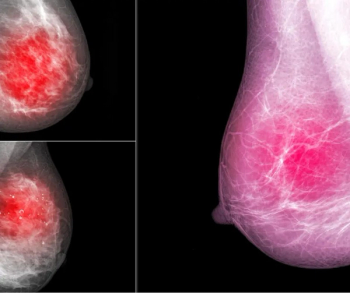
In a review of 22 studies and data from over 132,000 women with dense breasts and negative mammography exams, researchers found that magnetic resonance imaging (MRI) was superior to digital breast tomosynthesis, handheld ultrasound and automated whole breast ultrasound for the detection of breast cancer.